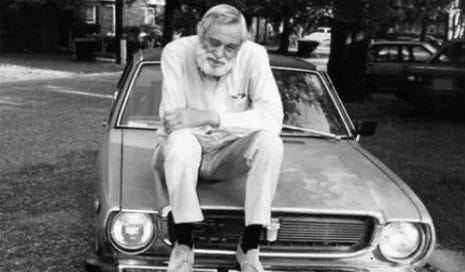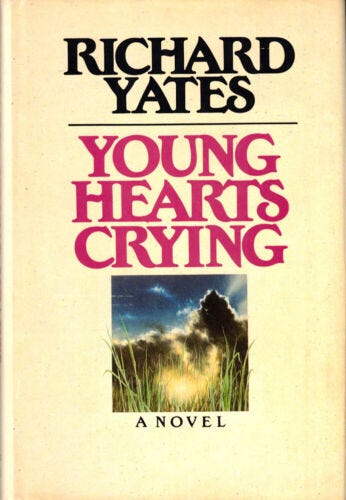Maybe the word devastating is a bit overblown. Hyperbolic. Whatever adjective — it’s a bit dramatic. Novels are supposed to tap into something, tug on the heart strings, place the reader into situations they would never be able to dream up themselves.
But the great ones, over a few hundred tension filled pages, can slowly steamroll you into submission. They can even make a young heart cry.
In the early days of this here newsletter I wrote about what I termed devastating fiction after I read The Easter Parade by Richard Yates — a book I think about all the time. Not because anything blatantly sad happens, but purely because of Yates’ ability to perfectly depict the banality of life — and that, the desire for a meaningful life, is truly the saddest thing we’ve got going.
Richard Yates has it. Whatever it is that makes me want to read — he has it in spades. I read Yates slowly. I’m working though the catalog thoughtfully, not wanting to speed through it since I know he doesn’t have anything in the works.
Revolutionary Road. The Easter Parade. A Good School. Eleven Kinds of Loneliness. All are certified, locked and loaded, devastatingly good books. And i’m excited to get to know a few more.
Young Hearts Crying is the the vivid destruction of the American Dream in slow motion. Michael Davenport marries Lucy, a young heiress, right out of college. He makes it a point to ignore her fortune and to shun any potential for financial assistance. He plans to make it as a poet and playwright all on his own.
We follow this bad pairing through life, minor wins and minor defeats, as they both strive, and fail, to live a life in the arts. Early on in the novel we witness the quick dissolution of their marriage. From there we follow each of their threads, relationship to relationship through the ages, and the slow unfurling of their collective sanity.
It’s not much of a spoiler to say that both of our main characters never fully realize anything other than blips of success that keep them ignoring the present and ignorantly mining the past.
They never come to any conclusion other than the simple fact that we live in our own circular ruts and that just may be all we’ve got — ain’t that just about the most devastatingly sad thing you could ever imagine?




